This is why queer graduates’ identities are their ‘superpowers’
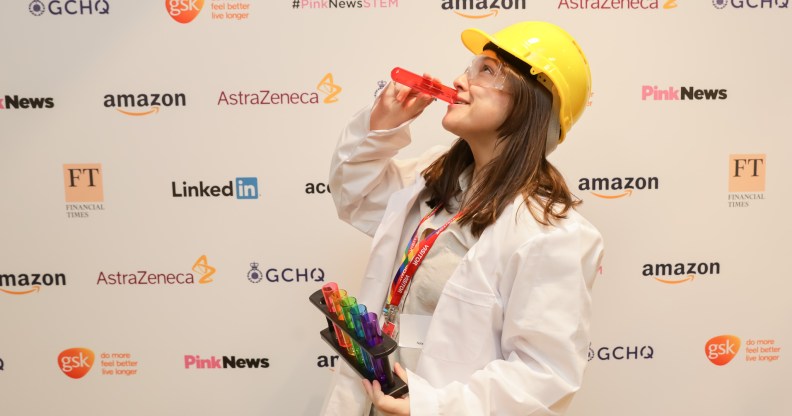
Dozens of graduates packed the offices of Amazon for PinkNews’ 2020 LGBT Leaders Stem event. (Paul Grace)
This year’s LGBT Leaders STEM was a vivid array of corporations and community leaders coming together to show queer young people our identities, above all, are our “superpowers”.
The Amazon HQ was packed with aspiring STEM hopefuls earlier this month, all eager to hear insight from tech leaders and queer activists from across the UK.
If this is the first time you’re hearing about it, LGBT Leaders is a series of conferences organised by PinkNews, hosted by Amazon, with the aim of addressing the troubling fact that 41 per cent of undergraduates go back into the closet after starting their first job.
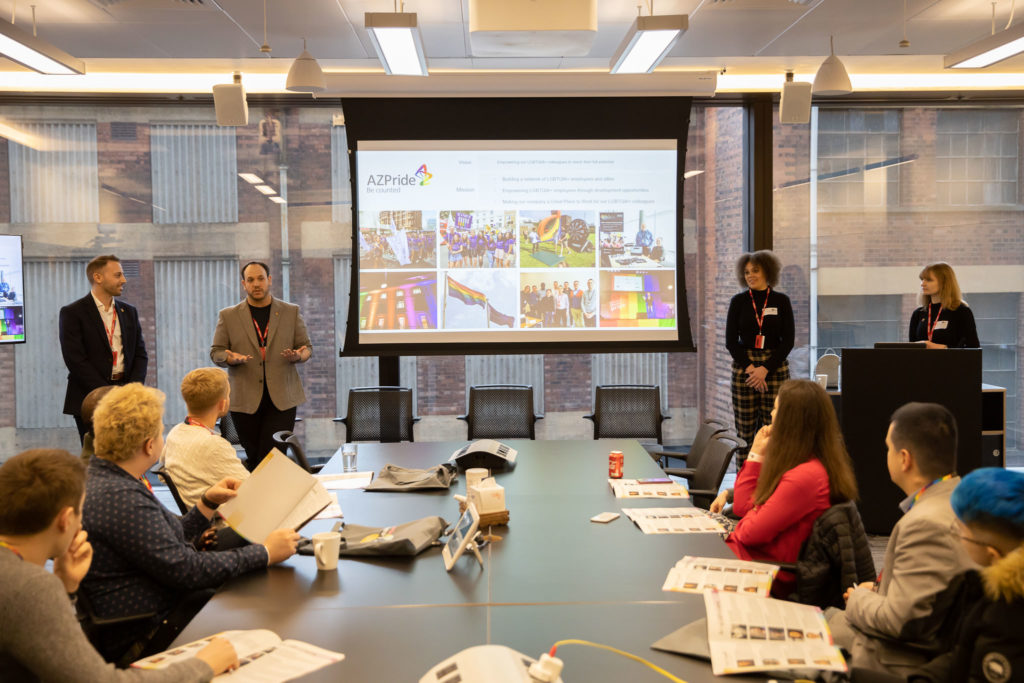
Graduates received insight from leading industry experts as well as workshops and training. (Paul Grace)
More than half of LGBT+ employees don’t come out at work because they fear that they will face discrimination from managers and colleagues, according to an international survey conducted by Vodafone.
LGBT Leaders STEM is looking to change that statistic, and, in doing so, change the fear that LGBT+ people experience all too often in the workplace.
Dozens of tech experts had travelled to London to lead panels discussing everything from bi+ visibility in the workplace to workshops on polishing up their LinkedIn profiles.
Our LGBT+ identities are our ‘superpowers’.
Industry leaders from online bank Monzo to the Financial Times, fashion retailer Net-A-Porter to video games supergiant Playstation came together for the day. Alongside activists and advocacy groups pushing the binaries and boundaries of what it means to be queer and work in STEM.
Shattering expectations was more than a hobby for Meri Williams, the chief technology officer for Monzo. For the event’s first talk, Williams, a Stonewall trustee, told conference-goers about her experience of being a minority in her workplace.
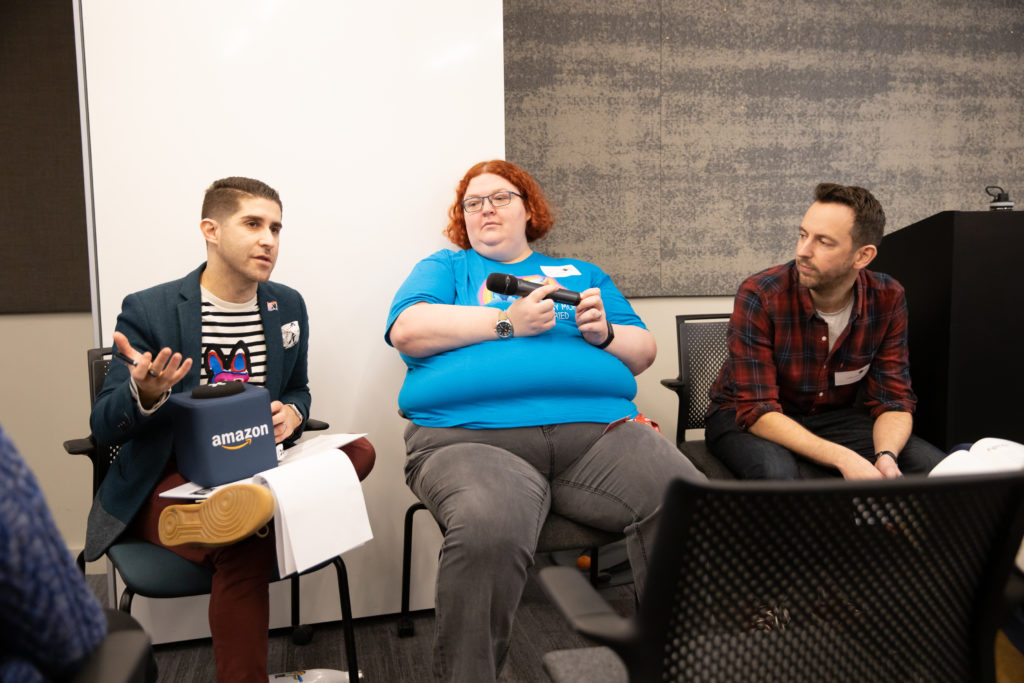
(From L-R): PinkNews CEO, Benjamin Cohen, Monzo CTO Meri Williams and Wellcome Trust strategy director Ed Whiting. (Paul Grace)
“Fin-tech and banking generally do not have a long tradition of gender inclusiveness,” she said, “for any gender, except one.”
“I joke that I’m literally the one that the Daily Mail warned you about, I’m a woman working in tech, an immigrant with a job, I’m queer and I’m disabled and I’m neurodiverse.
“So, I’m literally over here stealing your women and your jobs.”
Class and disability are two intersections of Williams’ identity that she has, in moments, struggled with in the STEM world. “There are days when I’m on crutches or in a wheelchair and people treat me very differently depending on how visibility disabled I am on any given day,” she explained.
Having to come out over and over again as disabled, William said, and battling assumptions “is more challenging because it’s much easier to mention my wife in conversation and I’ve been very out in that respect”.
Similarly, jumping in on the panel was director of strategy of Wellcome, Ed Whiting. He described LGBT+ workers who first formed queer networks in workspaces as “pioneers”.
He added: “We are far too white, far too male and far too straight.”
Whiting described that when his organisation had everyone sit around in a room and explain a time when they felt “excluded” really brought the room together. Forging lines of solidarity.
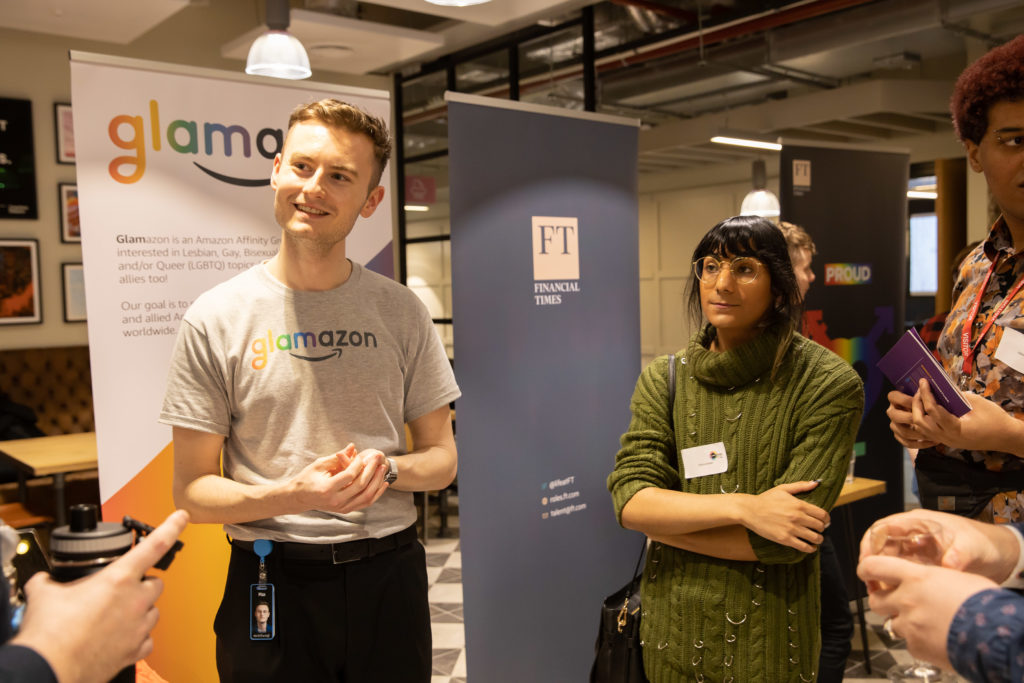
(Paul Grace)
Ultimately, Williams said, our identities are “our superpowers”.
People who come out and stay out in the workplace must be commended for their ‘bravery’.
This was echoed in another panel discussing coding, data and software, where there’s more to companies and employees hurling a rainbow lanyard on when it comes to diversity.
Really privileged to be part of this amazing panel this morning! So inspiring to hear of everyone's different route into tech and how we need to come together to create safe spaces in our workplaces @LGBTLeaders #PinkNewsSTEM https://t.co/6fzQ19g64v
— Natasha Wright (@toish100) February 15, 2020
Moreover, the “bravery” people must show to be LGBT+ in these fields must not be ignored, whether by new recruits or senior managers.
Members of the Proud Science Alliance – comprising the pharmaceutical trilogy of GlaxoSmithKline, AstraZeneca and Pfizer – teamed-up to give attendees advice and practical insight into how they can be the leaders of tomorrow. Diversity, the group argued, is a source of invaluable strength.
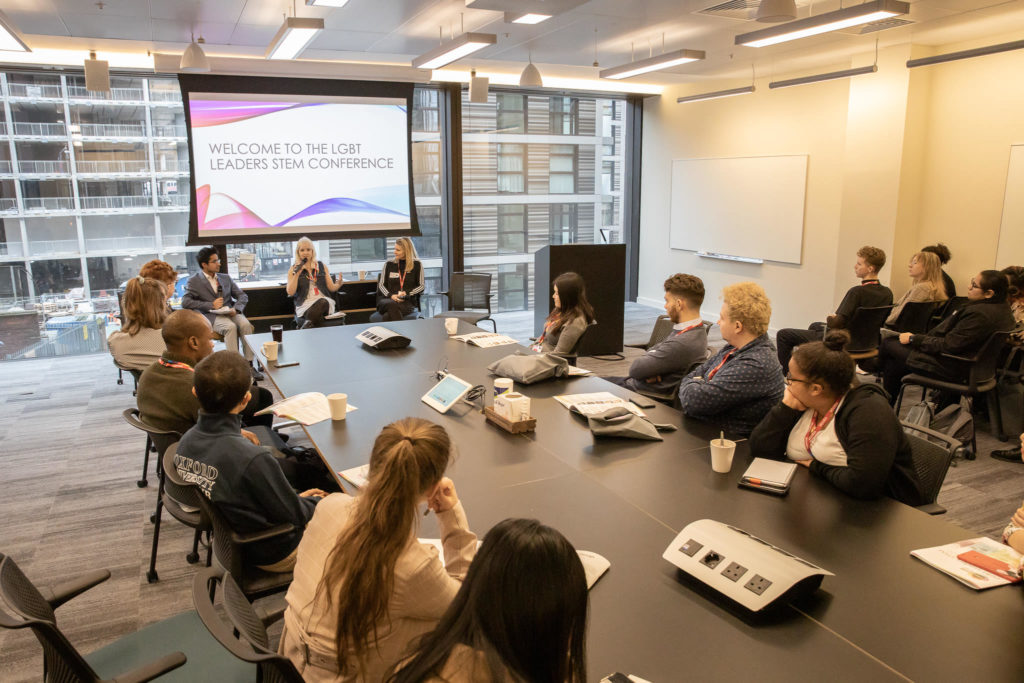
(Paul Grace)
But while the “diversity” can feel, at times, tacked on my companies. A simple tick box. Writer Vaneet Mehta told a panel discussing bi+ visibility that the phrase ‘LGBT+’, “often tends to distil just… gay.
“It needs to be changed as it’s harmful to all sexualities.”
Ultimately, the roster showed the graduates-to-be that whether pursing pharmaceuticals, coding or eager to suit-up and head into banking, sexuality and gender identity is no reason to doubt yourself.
As Financial Times principal engineer Dawn Budge said after the event: “I would have found this so helpful had it existed when I was a grad/new professional and its really encouraging to see things get better for this generation.”

